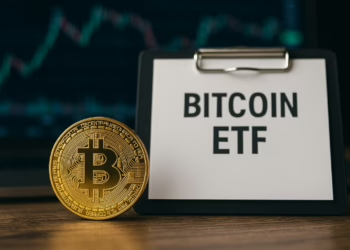Thailand’s Securities and Exchange Commission (SEC) is investigating Zipmex to determine whether the company’s earning products have violated any regulatory rules. Local law enforcement is looking into actions that they believe may be in violation of the terms of service for digital asset providers.
This investigation is part of the SEC’s ongoing efforts to ensure compliance within the country’s financial sector and protect investors from potential fraud or misconduct.
On December 28, a report emerged stating that the Thai SEC had sent a letter to Zipmex, a cryptocurrency exchange, indicating that two of its products, ZipUp and ZipUP+, had violated digital asset business rules. The report cited specific violations, but the details were not publicized.
Zipmex had been offering its customers the opportunity to earn returns for holding assets in the ZipUp and ZipUp+ products. These earning products, known as “earn products,” allowed customers to earn interest on their investments, much like traditional savings accounts or certificates of deposit.
However, the regulator frowned at these “earn products” and petitioned Zipmex. The SEC alleged that the exchange was operating as a fund manager, violating the regulations set forth by the regulatory body.
In light of this, the Thai SEC has requested that Zipmex come forward to clarify the matter before January 12. This is a significant development for the exchange, as it implies that the SEC is taking the case seriously and wants to ensure that the exchange complies with the relevant regulations to protect investors and maintain fair and orderly markets.
Zipmex is currently undergoing restructuring after being impacted by the prolonged bear market. According to reports, Zipmex is being acquired for approximately $100 million by V Ventures, a subsidiary of Thoresen Thai Agencies PCL. Additionally, the company has secured a creditor protection extension until April 2, 2023.
Zipmex was one of many exchanges that suspended withdrawals last year due to loans given to cryptocurrency lenders Babel Finance and Celsius Network, which left the company unable to repay users’ funds.
The exchange attempted to solicit funds from banks and venture investors to pay off the debt, but these efforts were unsuccessful.
Meanwhile, this is not the first time the regulators have investigated Zipmex. Thailand’s SEC has previously investigated the company and its practices regarding managing its customers’ assets. As part of this investigation, the SEC had accused Zipmex’s CEO, Eklarp Yimwilai, of failing to provide sufficient information about the company’s methods for managing assets held by its customers.
The Thai SEC plans to implement stricter rules on digital assets similar to those in the international market to better protect investors.
If you would like to read more news articles like this, visit DeFi Planet and follow us on Twitter, LinkedIn, Facebook, and Instagram.
“Take control of your crypto portfolio with MARKETS PRO, DeFi Planet’s suite of analytics tools.”




















